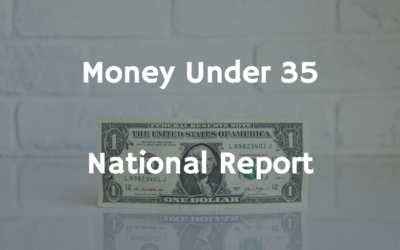
This article was updated March 6th, 2019.
I was at Florida State University recently and was walking through the student union after wrapping up a lunch meeting. I was a bit surprised, and honestly proud, to notice a student who was standing alone and reading his invitation to join the National Society of Collegiate Scholars (NSCS). At first I thought I should keep walking but after a few steps further I knew I couldn’t pass up the chance to congratulate him.
I walked up and asked if he had any questions about NSCS. He said that he, and his parents, were still discussing whether he should join. He asked me if I knew about the benefits of the organization and I told him that I actually was pretty well informed. I gave him all of the reasons I thought he should join and provided him with my phone number and email. I think he was a bit surprised when I finally told him that I had signed the invitation letter he was holding and I am the CEO/founder of NSCS. I also promised him I wasn’t a stalker.

I took this picture because, honestly, I didn’t think anyone in my office would believe this story.
I wish I could wave a wand and show up and answer the questions for everyone, everywhere who is invited and considering joining an honor society.
The truth is that it is easy to get confused about what is and what isn’t a good, legitimate and worth the fee to join opportunity.
In order to make the best decision, students are consulting with their parents more about these opportunities… and parents are sometimes at a loss for how to be helpful. The biggest question is always how do you actually know which honor societies are valuable, worthwhile and legitimate.
I like to remind students, parents and the university community that an honor society recognizes you for your ability to be academically successful and provides you with an opportunity to be engaged with a group of likeminded high achievers. Most honor societies provide scholarships, career and networking resources, community service, activities on campus and experiences that will add recognition and value to the overall college education.
The biggest hurdle for many parents is understanding that every college honor society charges a fee to join. The perception seems to be that you should not have to pay for an honor. In college, you earn the ability to be invited to join an honor society and you pay if you choose to join. Every college honor society has a membership fee. The fees vary from $20-$125 and some actually charge national and chapter fees. You should not assume it is not legitimate because there is a membership fee but you should decide if the fee is affordable for you and provides you the benefits/value you’d expect for what you pay.
With that in mind, and if I could actually chat with every person who gets invited to join an honor society, here are ten key tips to help you determine which honor society is the right one for you or your student. These tips should also help you quickly discern if a group is a scam or a group that is falsely presenting itself as an honor society.
- The Association of College Honor Societies (ACHS) is the national organization that certifies honor societies which are meeting the highest standards. Check the list of ACHS members to confirm the honor society you are considering is not a scam here.
- If the honor society you are considering is not a member of ACHS, you may want to call the honor society directly and ask why they are not a member.
- Actually, another way to discern the legitimacy of the honor society is to give them a call. Does the website provide a phone number that can be answered by a person? Be concerned if you only get a voicemail option when you call. Also, is there an actual address listed on the website and not a PO Box?
- Also make sure the website has a fully accessible list of national officers and headquarters staff, criteria and benefits of membership, membership fee, bylaws, and chapter charter policy.
- Speaking of membership fees, and to reiterate, every college honor society has a membership fee. This is different than your experience may have been with the National Honor Society (NHS) in high school. The fee typically covers the expenses related to the benefits you receive as a member. You may also find that many honor societies have a one-time lifetime membership fee. My experience and belief is that the decision to join is making an investment in your future.
- Never join an organization that only provides an online application to join. You may be able to join a legitimate honor society online but you should have received something from the organization stating that the campus you attend has verified you are qualified to join. Vague or flexible membership criteria is not acceptable for a legitimate honor society.
- Make sure there is an actual recognized real chapter on your campus. Do not join an honor society that does not provide a way for you to interact and meet other members on your campus. Some scam groups will list a member name and the school they attend to make it appear as though there is an actual chapter but if you look closely that group won’t have the ability to get people together, as a chapter, on campus. You may join an honor society with no intentions of being very involved or attending a chapter meeting – but any legitimate honor society will have a local chapter and a way for you to interact if you choose to do so.
- You should confirm the honor society is a non-profit organization. Many scam honor societies are emerging that are portraying themselves as a non-profit, for example, they may use a .org domain name for their website, but they are a for-profit company. Make sure the organization you are considering joining has an annual report on their website and will provide you with financial information if you ask. Transparency is key and groups that are not sharing are probably not a group that you should join.
- The Association of College Honor Societies provides a great list of “how to judge the credibility of an honor society”
- Finally, just because you, your parents, your RA, your professor or anyone you may ask has not heard of the honor society you have been invited to join, doesn’t automatically/immediately mean it is a scam or not a legitimate honor society. Phi Beta Kappa is the oldest honor society and there are people who have not heard of it. However, if you take a few minutes to do your research, you will quickly determine the honor societies that exist to add value and good recognition to your college experience…. and those that you may want to avoid.
Congratulations if you have been invited to join a college honor society! I like to remind students that the majority of their college peers don’t get invited to join any college honor society. It truly is an honor.
And, if you are the parent/family member of a student who has been invited to join, I’d like to congratulate you as well. The sacrifices and investments you have made for your student are also obvious when the awards and accolades arrive. The recognition and congratulations are well deserved by you as well. Don’t miss out on the possibilities and good luck making the smart decision to join.
Steve Loflin is the CEO & Founder of The National Society of Collegiate Scholars (NSCS) in Washington, DC. He is the past president, and former board member, of The Association of College Honor Societies. You can learn more about NSCS at www.nscs.org and you can reach Steve at loflin@nscs.org



